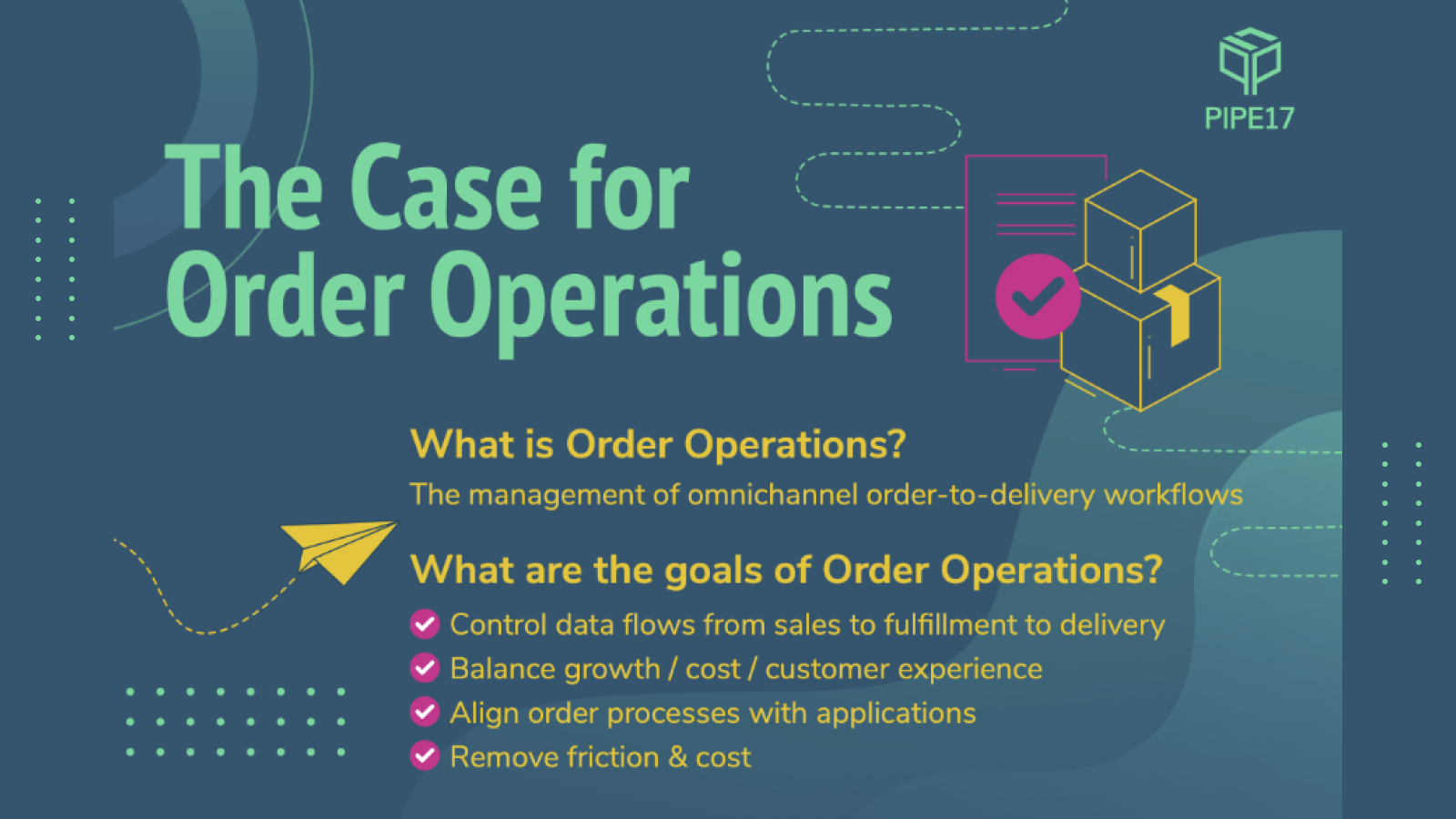If you are an operations manager with an ecommerce company that’s super cool (and has a great PR team), you’ll probably experience viral moments. These moments can make or break your company (and your career) so it’s important not to screw it up.
Viral moments are the stuff ecommerce dreams are made of. At least that’s the case for the CEO, the marketing team, and the sales reps. For them, the moment your product is picked up by Goop for their annual gift guide or your crowdfunding project beats all expectations is pure magic. It’s the culmination of months (even years) of work.
But for operations, viral moments are an entirely different game. Selling a high volume of products is just the first step: operations are the ones that make sure the right products get to the right place, at the right time. Your department is the one with the true “make or break” power. And if you wield that power incorrectly, you can accidentally bring your ecommerce store to its knees. For ever.
Here’s how not to break a business right when it’s growing fast.
1. ALWAYS get involved in any growth planning or strategizing
Virality doesn’t happen accidentally. Every viral moment happens thanks to something your company put in motion. That’s why it’s vital to communicate with the PR and marketing teams. Have regular zoom calls discussing strategy. Stick your nose into the planning stage for any promotions that require extra inventory. And whatever you do, keep bugging them for the PR and marketing schedule. Make friends with the people that are out front driving the star power of your products. Those relationships are the key to your inside knowledge.
Here’s why that is particularly important:
The PR team knows when a favorable article is scheduled to go live at a key publication. Or when your CEO’s latest podcast episode is going to land. Or when that hot influencer your customers love is scheduled to receive a gift. The marketing team knows when they’re introducing a big promotion. Or when a fresh new discount will be revealed through a series of sales emails.
It gets better. Connecting the outbound marketing and PR with your backend operations, helps you use the projected marketing plan to (more) accurately predict inventory levels. This allows you to negotiate discounts from your suppliers and plan for shipping costs based on volume. It also lets you communicate the anticipated surge to your 3PL and build a stronger relationship with your fulfillment team. And your IT team can prepare for higher than normal website traffic and can make sure that your systems are running smoothly. This also helps them prepare for the increase in orders.
But don’t get complacent and stop yet. There is a little more to do now that can pay dividends later. This advanced prep time is also perfect for looking for potential roadblocks to success. It’s the time to set contingency plans in motion so that everyone in ops knows what to do when there’s a surge in orders.
And here’s the lynchpin: when operations, marketing and PR work together, sales opportunities start increasing. If ops notice that there’s an excess of a certain SKU, the marketing team can put together a bundle or promotion for that SKU. If marketing notices a timely campaign opportunity, they can let ops know in advance so the team can prepare. This leads to sales surges and growth. And if your plan is to be seen by the management and founders of your company as the best freaking ops manager they’ve ever seen, growth is your resume.
2. Prepare for a surge
With proper planning, a viral moment can be the financial boost that helps keep inventory flowing and keeps the staff payroll comfortably paid. (And when that’s all in place, you can ask for that well-earned raise.)
Here are some signs of revenue-boosting operations procedures you can be responsible for:
- Keep an eye on the publishing schedule. Is your episode of Shark Tank running again on CNBC Tuesday? Is a magazine or prestigious digital publication releasing a top 30 gifts list that features a few of your products? Has an influencer scheduled a sponsored IGTV event? Orders tend to go up around these events so search through TV and publishing schedules and add these to your calendar. (The marketing department should be able to help out too.)
- Stay up to date with the founder/CEO’s vision. What products are they thinking of bringing on? How are these going to work? They invented your first product, they probably have a lot more ideas. Buy them a meal or a drink and pick their creative brain. Are there any future partnerships you need to know about? Are there any plans to change vendors or introduce major software that can interrupt operations? Are there planned changes in packaging or branding? The more you know, the more you can prepare.
- Keep your warehouse in the loop. Let them know what to expect and update them regularly. Keep them on a tight schedule for ramping up staff levels for an upcoming event. Make sure they have the right packaging materials and have a way to reach you quickly when something unexpected happens so you can react fast. Negotiate some volume discounts while you’re at it. Be bold. Nobody ever got noticed hiding in their cubicle.
Doing these three things supports growth (yours and the company’s). With proper planning, viral moments can be a tidal wave of orders that gains customers, eliminates friction with your 3PL, and keeps the pressure off your smoothly running supply chain.
3. ALWAYS be the practical gatekeeper
The e-commerce operations ecosystem is surprisingly fragile. Like a toddler, it needs constant supervision. Customers — and most departments — only see a tiny part of it. They see the front end, where all the exciting things happen. And most teams have the job of making that front end look, sound and feel better.
But here’s the thing. Any changes to the front end, the product or the packaging can set off a positive feedback loop that leads to operations explosions. That’s why it’s down to operations to work with each department and make sure that any creative changes work on a practical level.
Your job may not be glamorous but it’s pivotal. Own that power and use it for good.
Let’s say the design team is tasked with making the packaging feel more on brand. They decide to make the barcode a pale green because it looks great on the box. But the warehouse scanners can’t read that color, making it impossible to fulfill. That’s why you have to work with design, marketing and development to transform their innovative creative ideas into something that works in the ops world. If the marketing department printed all the packaging using that color, the entire line comes to a grinding halt and your system is broken. For a long time. And this involves a lot of conversations.
If you don’t want to break an e-commerce store, make sure your communication skills are your strongest feature.
The uncomfortable truth about operations
There’s one crucial truth about ops that most people working in other departments don’t realize:
We (you!) are the glue that holds the company together.
A bad marketing campaign can land a company in hot water. A poorly performing sales team can hurt the bottom line. A lazy customer support team can destroy review ratings.
But if ops is badly run? If there’s no one to make sure:
- the manufacturer is on track
- products are purchased at competitive prices
- freight is moving towards your warehouse efficiently
- inventory is getting to the right partner at the right time
- the warehouse has the right packaging in stock
- all the software is talking to each other
- we’ve got the right products for all the upcoming promotions
- there are no delays in shipping (and any foreseeable delays are caught early and minimized)
- fraudulent transactions are getting caught (and paused) before they can cause damage
- Every item has a barcode and is ready for retail sale
- Customers are receiving orders efficiently
If these — and the dozens of other key pieces ops is responsible for — aren’t in place, then the e-commerce store will die.
Sales, marketing and PR can drive revenue. But Ops, ops can break a company. So it’s critical to have your operations team on point.
Because without ops, customers don’t get products. And if there are no products, there is no business. So let’s keep the business going and make the most of those viral moments.






